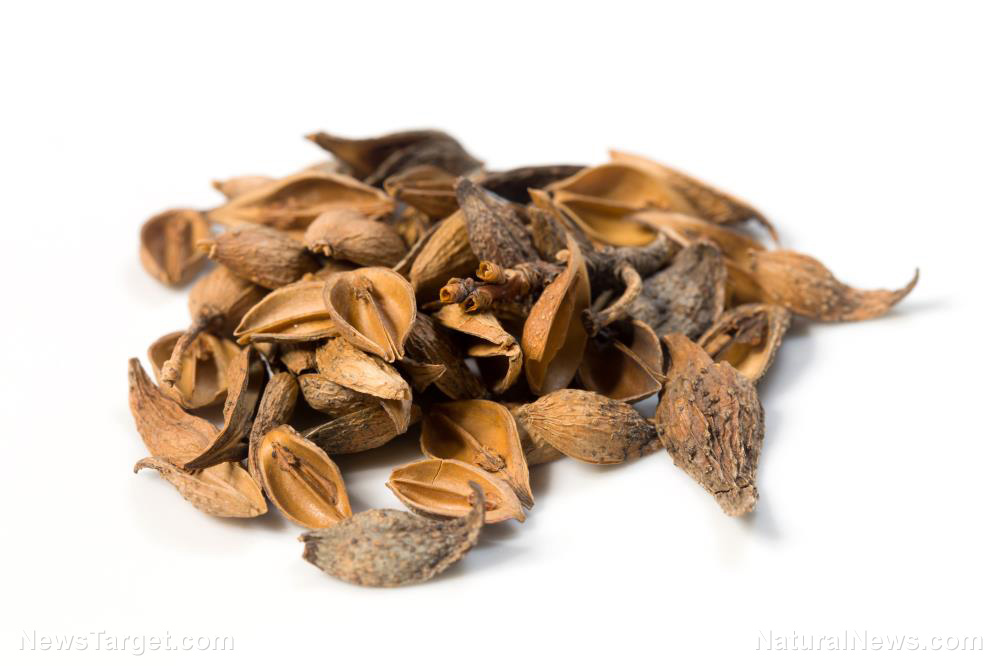Flaxseeds improve gut health and metabolic health, increase production of beneficial fatty acids
07/25/2019 / By Edsel Cook

A joint study by Danish and Swedish researchers found a new and healthy reason for people to eat flaxseed. Their research showed that the dietary fibers in flaxseed could trigger positive changes in the composition of the gut microbiota that ferment these fibers. These alterations in gut microbiota can improve metabolic health and lower the risk of obesity.
Microbiota is the collective term for the various microorganisms that dwell inside the human body. Made up of both good and harmful microbes, they play essential roles in different physiological functions.
The bacteria found in the digestive tract are part of the gut microbiota. They help control weight and influence glucose tolerance, the body’s ability to absorb and use glucose. These gut bacteria feed on dietary fibers by using fermentation to break down the tough carbohydrates.
Fermented dietary fibers bring many benefits to the digestive tract. One of their most important roles is providing raw materials for the production of good fatty acids. These fatty acids benefit the body by supporting the immune system and reducing the production of adipose tissue. (Related: Grind them: Get the most benefit from flaxseeds by taking this extra step.)
Investigating the effects of flaxseed on gut microbiota
Flaxseed is the dried, ripe seed of the flax plant (Linum usitatissimum). Rich in dietary fibers, flaxseed can help improve cholesterol levels. Eating flaxseed also helps control inflammation in the colon.
There is a lack of research regarding the fermentability of flaxseed. Likewise, only a few studies have investigated how flaxseed affects the gut microbiota.
Researchers from the University of Copenhagen and the University of Gothenburg used mice to examine the effects of diets with different fiber content. Animals received either standard foods with soy-based fiber (control) and three different types of high-fat diets: one with no fiber, one with 10 percent cellulose, and one with 10 percent flaxseed.
The researchers recorded the amount of food, water, and oxygen consumed by the mice. They also measured the amount of carbon dioxide the mice expelled, the amount of energy the mice expended, and the mice’s glucose tolerance. Finally, the researchers examined the contents of the cecum – a pouch considered to be the beginning of the large intestine.
Gut bacteria ferment flaxseed fibers to produce healthy fatty acids
The researchers reported that consumption of a high-fat diet without fiber caused mice to have fewer good bacteria and lower levels of beneficial fatty acids. Compared with the other groups, these mice also had a larger population of a bacterium associated with obesity.
On the other hand, mice that consumed dietary fibers in the form of cellulose or flaxseed had healthier levels of good bacteria in the gut. Furthermore, the researchers observed that the animals in the flaxseed group were more physically active and did not gain too much weight.
Other health benefits associated with adding flaxseed to high-fat diets included better glucose control and higher levels of short-chain fatty acids (SCFA). These beneficial SCFAs improve energy metabolism, protect against insulin resistance, and help prevent diet-induced obesity.
Upon examining the material inside the cecum, the researchers found that gut bacteria fermented fibers from the thick layer of the flaxseed shell. The fermented fibers then served as raw materials for the production of SCFAs.
“Our data suggest that flaxseed fiber supplementation affects host metabolism by increasing energy expenditure and reducing obesity as well as by improving glucose tolerance,” the researchers explained. “Future research should be directed to understand [the] relative contribution of the different microbes and delineate underlying mechanisms for how flaxseed fibers affect host metabolism.”
Sources include:
Tagged Under: alternative medicine, anti-obesity, beneficial fatty acids, clean food, dietary fiber, disease treatments, fightobesity, flaxseed, food cures, food is medicine, functional food, glucose tolerance, good bacteria, gut health, gut microbiota, high-fat diet, metabolic health, natural cures, natural medicine, obesity, prevention, research, SCFAs, short-chain fatty acids, weight loss, weight management
RECENT NEWS & ARTICLES
COPYRIGHT © 2017 RESEARCH NEWS



















